Starting from a valley in the centre of Tủa Chùa District, we travelled by motobike for more than one hour through a distance of 30km on winding roads to the plateau which is located in the Tả Phìn Commune, Tủa Chùa District.
On the way, we climbed many cliff-like rocky layers which stand proud in clusters, exuding the captivating beauty of the highland area.
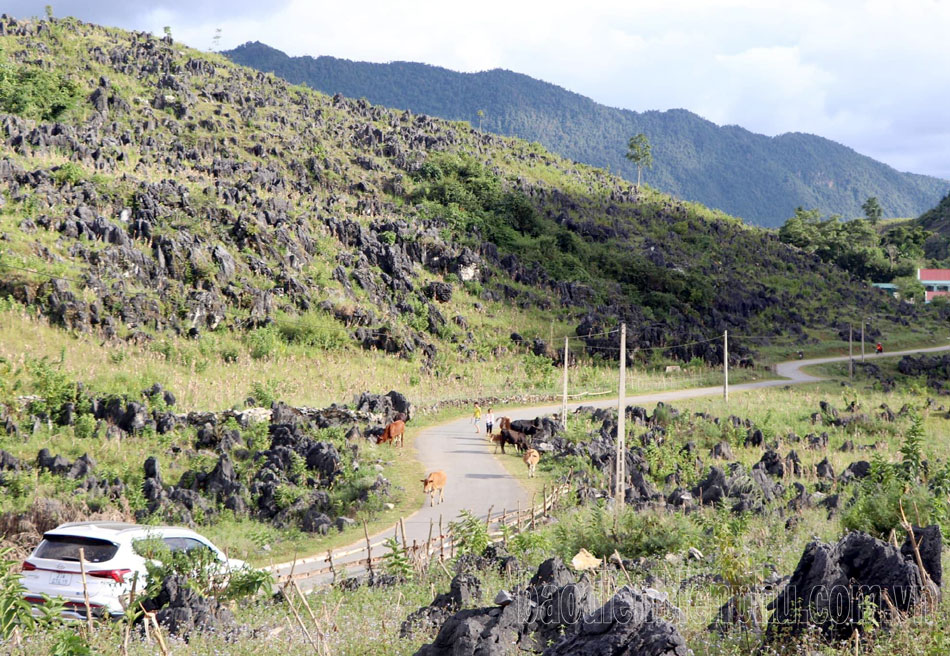
The wild beauty of Ta Phin stone plateau. Photos Minh Thảo
Tả Phìn plateau, itself is about 4km long, stretching along the inter-commune road deeper toward villages, includes many large 'cat-ear' rocks stacked side by side, layer upon layer rising towards the sky like a 'stone forest' growing from the valley to the top of the hills.
Overwhelmed by the mystery and magic we immediately stopped to capture beautiful moments. There are limestone mounts of all shapes and sizes and patches of stones, many pointed and sharp. The scenery still retains its original fascinating features and inspired us awake from the fatigue after a long journey.
Then among the endless layers of rocks, the homes of the Mông people, who have built their homes on the rocks, with the ethnic community in Tả Phìn living in harmony in a land surrounded on all sides by rocks. They still preserve their long-standing traditional cultural customs and way of life and when we visited welcomed us into their homes.
Their unique houses, from the foundations to the fences, were all built of stone. Some even have stone roofs. Each house usually has three rooms, two doors and must have two or more windows, leaning against a rocky cliff. While Mong people believe that every home has a soul, that heart is protected by stone fences, which also encircle gardens, fields and livestock grazing areas.
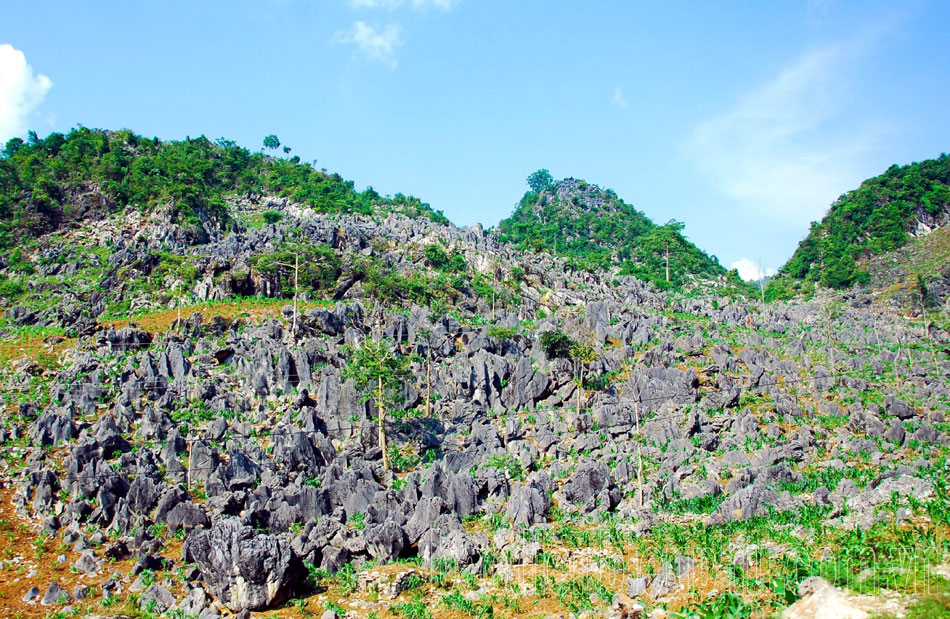
The captivating beauty of the plateau with layers of stones.
Mùa A Chè, who has lived in Tả Phìn for more than 40 years said in the past, life was difficult since the land area was mainly limestone mountains. However, the people here found ways to survive and used the rocks to build roads and fences and found ways to cultivate crops even within the rocky landscape.
Although life now is still hard due to the lack of land, local people here have known how to "conquer rocks" and "breathe life into rocks".
In his story about the stone fences, Chè proudly mentioned the Vàng Lồng Citadel -- a work built entirely of sharp stones, without any cements or adhesives -- a pinnacle of ingenuity showing the stone art of indigenous people.
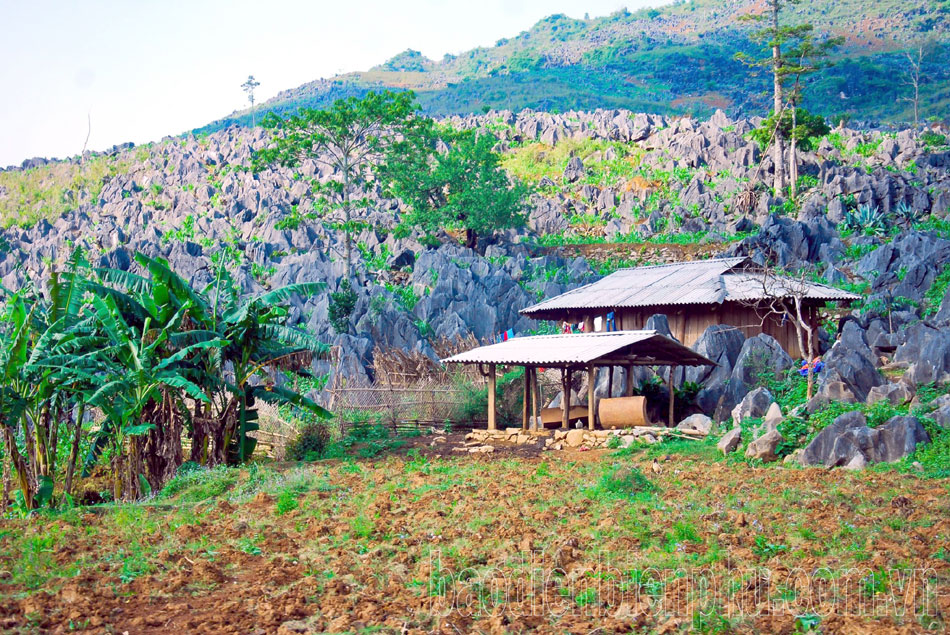
House of the Mông ethnic people in Tả Phìn stone plateau.
“When it was still intact, the Vàng Lồng Citadel had a circumference of over 400m, with two gates in the North and East. It has structure of an arc shape, winding along the mountainous terrain with an average height of two metres. The wall surface is more than a metre wide, solid and flat so people and horses can go on it.
"Over time, under the impact of human and nature, all that remained of the citadel were the western and eastern rampart of 110m and 90m length respectively. Some sections of the rampart is only a metre high. For the Mông people, the citadel is a guarantee of many national values, including those about their tradition, history, architecture and ancient customs. Currently, it has been ranked as a provincial relic and has been zoned for protection. Plans have been developed for restoration and embellishment to preserve the monument," Chè said excitedly.
Everywhere in Tả Phìn plateau, from the floors of houses to the hills, is covered by so many rocks that it seems there is nothing could flourish here, but the Mông people still can survive. They cultivate by pouring soil into rock holes to grow corn, peaches and other fruit trees.
Visiting Tả Phìn, you can see even on a grey rocky field, groups of Mông boys and girls with bright colourful dresses and clothes, patiently and meticulously weeding to grow corn.
The image of lush green corn trees growing on rocky holes and steep sloping land proves how diligent and hard working the local people are, we so admire their spirit of overcoming difficulties.
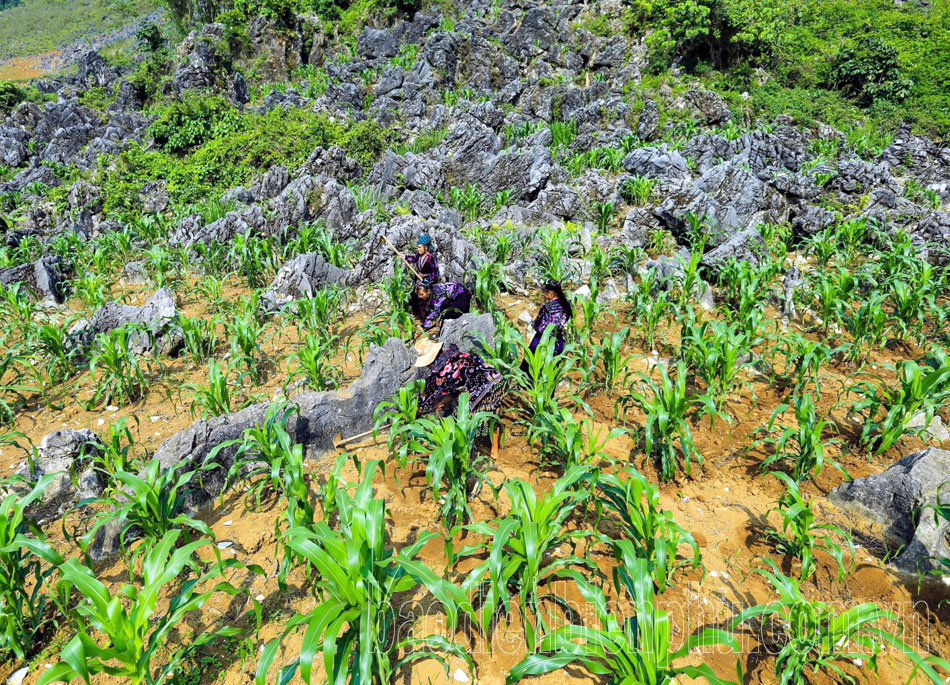
Mông ethnic people cultivate corn among the rocks.
Learning about the lives of the Mông people in Tả Phìn, we were impressed not only by their hospitality, but also their industriousness. Men with blacksmithing skills create the most sophisticated and sharp products, while all the women know how to weave and embroider brocade into brilliant and colourful patterns. The designs represent different meanings about the world, or of spirituality and simple dreams, which are featured on the costumes made by Mông women.
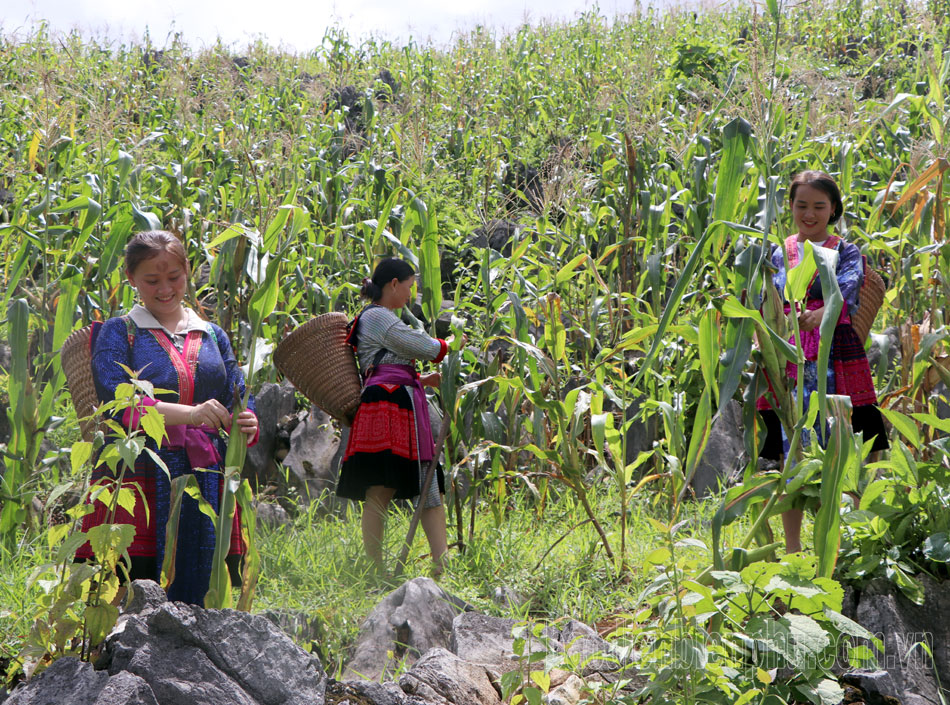
Some Mông girls with brightly folded skirts are working on the corn field.
The Mông people in Tả Phìn are welcoming to tourists. They are actively joining with the local Party Committee and authorities to implement the goal of turning tourism into a key economic sector after learning more about the benefits it can bring.
Many young Mông people are keen to promote the unique beauty of their land, while young Mông boys and girls in traditional costumes dance confidently and sing folk songs about their community on the top of the grey stone plateau.
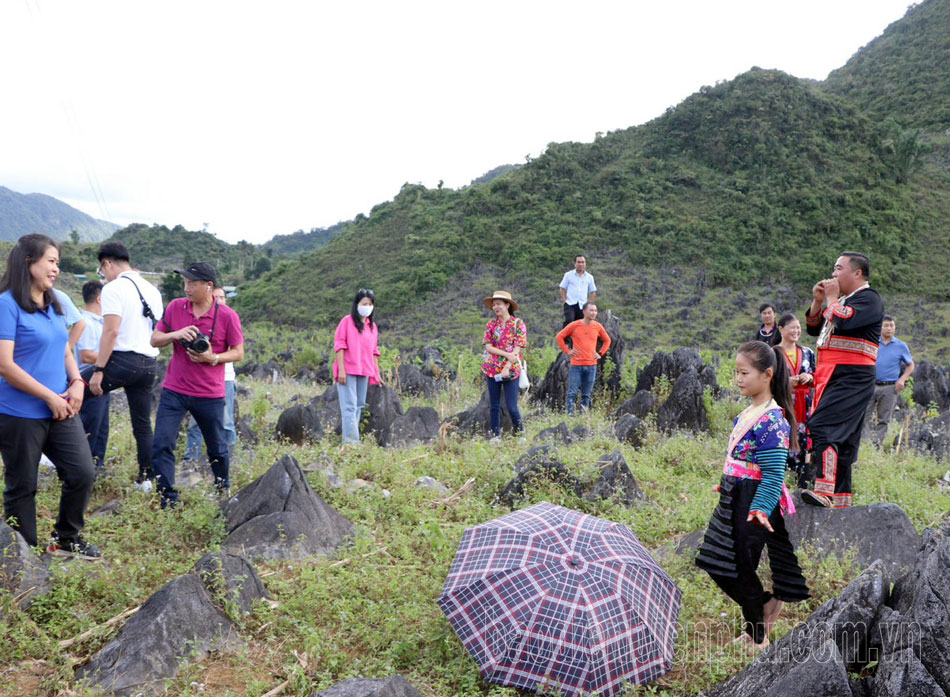
Mông people in Tả Phìn Commune have begun to change their thinking about tourism, confidently introducing their traditional values to tourists.
Saying goodbye to Tả Phìn, we know we will all miss the locals with their tight handshakes, rustic smiles and warm eyes. We believe that, with its own strengths and attractive tourism values, Tả Phìn will in the near future become a unique destination much admired by growing numbers of tourists.




.jpg)
.jpg)
.jpg)

.jpg)
.jpg)


.jpg)
.jpg)
.jpg)

.jpg)

.jpg)
.jpg)
.jpg)
You have 500/500 characters left
Please enter 5 or more characters!!!